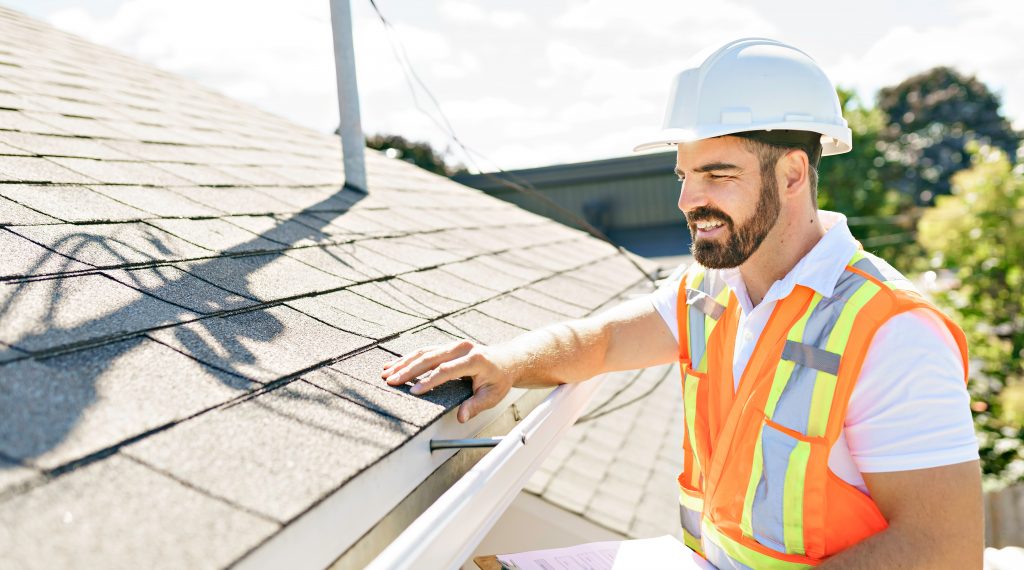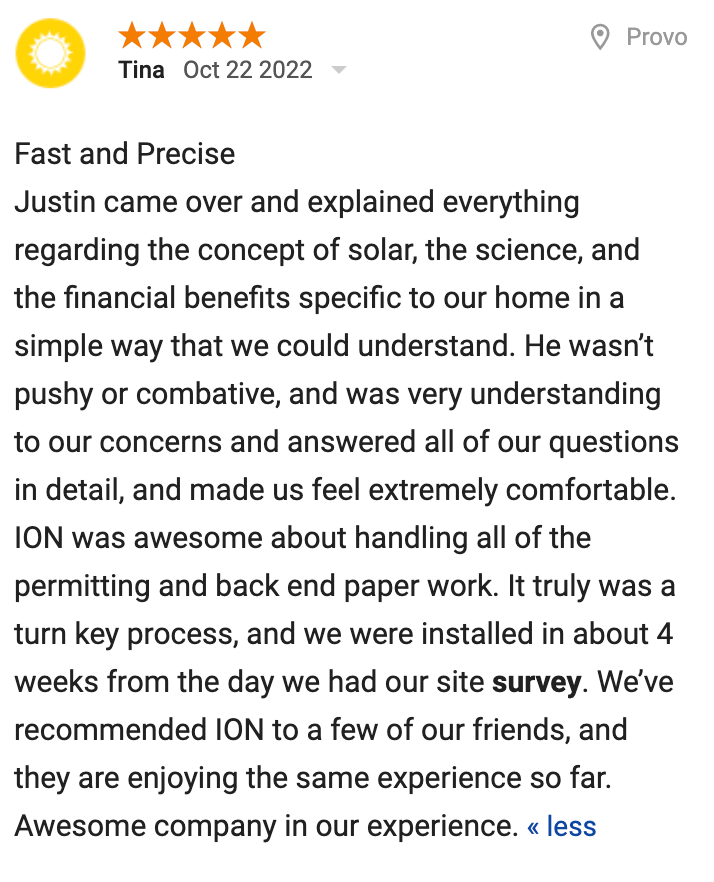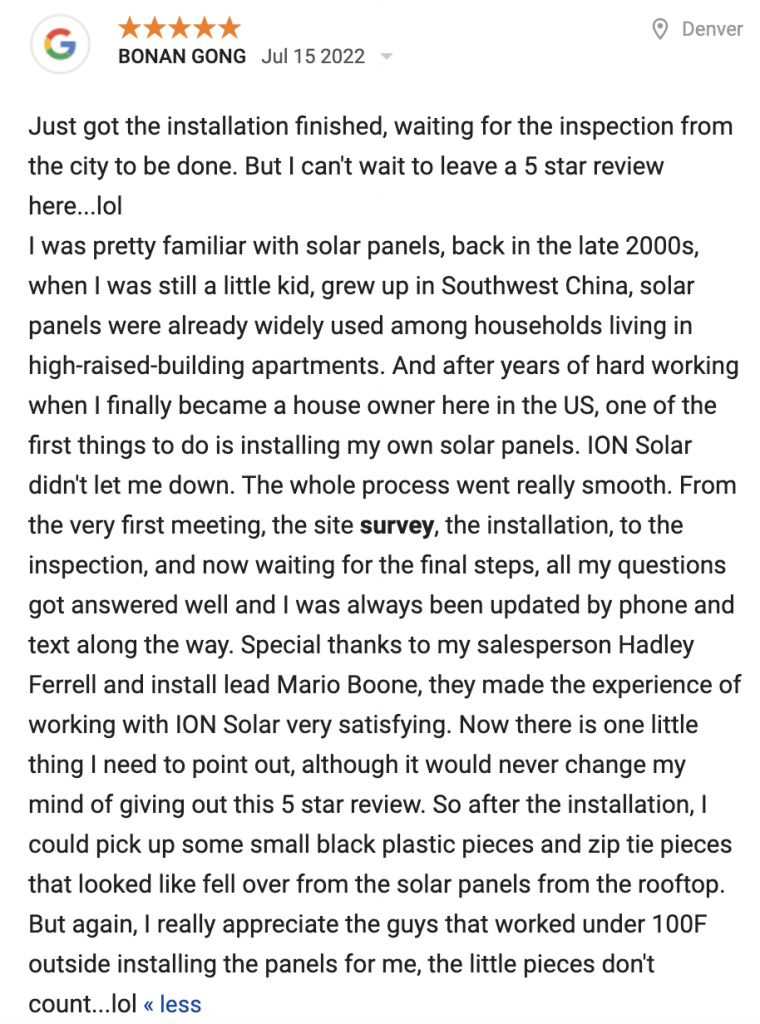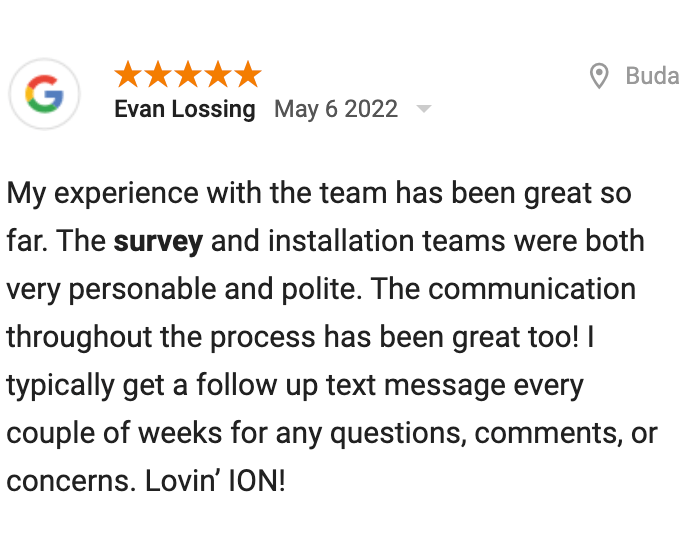The One Overlooked Element That Could Make or Break Your Solar Experience


One of the most vital steps in the process of acquiring and installing a solar panel system is also perhaps one of the least known among customers. The site survey, which evaluates a home for roofing, electrical, shading, and structural needs, also lays out the most efficient setup for customers. A thorough site survey should detect any potential issues that may come up during installation. The site survey acts as the eyes and ears (and hands!) of the design and engineering teams, allowing them to build plans before the installation ever starts. When site surveys are conducted incorrectly, it usually means longer periods of waiting for the customer at or after installation.

Faulty Site Survey Models
Despite the fact that an accurate site survey holds tremendous importance in the solar installation process, there is still an unfortunate tendency among some in the solar industry to under-deliver on the process. Specifically, there are a few red flags that homeowners should watch for in order to avoid a site survey that is faulty, rushed, or potentially problematic. Let’s take a look at a few together.
SALES REPRESENTATIVES CONDUCTING SITE SURVEYS:
It's costly and challenging for a solar company to build and maintain separate site survey, design, engineering, and compliance teams. Because of this, many residential solar companies choose to delegate the responsibility of conducting these important steps to the sales representative that sells the solar panel system. The salesperson becomes the one person responsible for gathering necessary information related to the design and layout of the panels, as well as the engineering specifications needed to meet the code requirement of the local area.
Obviously, this model carries with it some very real problems. First, the sales representative is rarely qualified to handle all of these challenging and vital steps prior to installation, and may not know what to look for outside of the basics. For instance, a sales representative conducting a site survey might be able to look at the spacing of a home’s rafters, but be unaware of the differences presented by conventional and manufactured tresses, and the resulting structural implications.
The other downside of using sales representatives to conduct site surveys is the tendency to rush through these important steps to complete the sale and move on to the next potential customer. Sales representatives can then boast about faster timelines from the time of sale to the start of installation, without considering the amount of time that will be wasted in redesigning and reengineering the system before it can be installed successfully.
"Solar companies that employ this model may advertise very quick installation timelines while neglecting to tell their clients about the long delays that will come before the system can meet code and be turned on. In some cases, this can take up to 6 or 7 months."
THE “AS BUILT” MODEL:
Another alarming and potentially costly practice that should be avoided is the “as built” model of survey and installation. “As built” refers to the tendency of some residential companies to under-deliver and rush through the necessary design and engineering steps, install a solar panel system, and then attempt to apply design plans as they were built.
This not only calls into question the safety and reliability of a system that wasn't designed with codes in mind, but also puts the customer at risk of paying extra unforeseen costs at the time of installation. For example, an incomplete or inaccurate site survey might fail to collect information about the life and quality of a roof’s shingles, while still handing the project along to an installation team. When that installation team arrives and sees the condition of the roof, it not only means a delay for the customer but also creates a financing issue for the homeowner who has purchased solar panels unaware of roofing issues.
Solar companies that employ this model may advertise very quick installation timelines while neglecting to tell their clients about the long delays that will come before the system can meet code and be turned on. In some cases, this can take up to 6 or 7 months.

Site Survey the ION Solar Way
THE ION SOLAR DIFFERENCE:
As the highest rated residential solar company in customer satisfaction, ION Solar has established a top-quality standard for efficiency, attention to detail, and timeliness. How do our site surveys reflect this? Just take a look:
- At ION Solar, our site surveys are conducted by trained members of a site evaluation team and not by sales representatives
- Our site survey team completes a rigorous evaluation before then incorporating the design team for the next step in pre-installation. This same process is employed before the engineering team checks the site. Each of these steps is taken before installation, helping our customers enjoy fewer delays and shorter overall start-to-finish times
- Because each of these teams is housed under a united leadership model, we are able to constantly streamline the process for efficiency
At ION Solar, we know that all of this needs to be done before a single panel is ever installed. Why? Because neglecting any one of these steps means running the risk of unforeseen costs, delays for our customers, or the chance of design plans not meeting city or utility code requirements.
Let ION Solar Help
At ION Solar, we apply the same level of care and attention to our site surveys as we do to the rest of the steps in the solar installation process. We know that a well-built, well-researched, and well-designed product will ultimately lead to a shorter overall timelines for our customers, and a better product in the long run.
Reach out to one of our team members today, and see the ION Solar difference. We power people. You power the future.
See What Our Customers Are Saying







